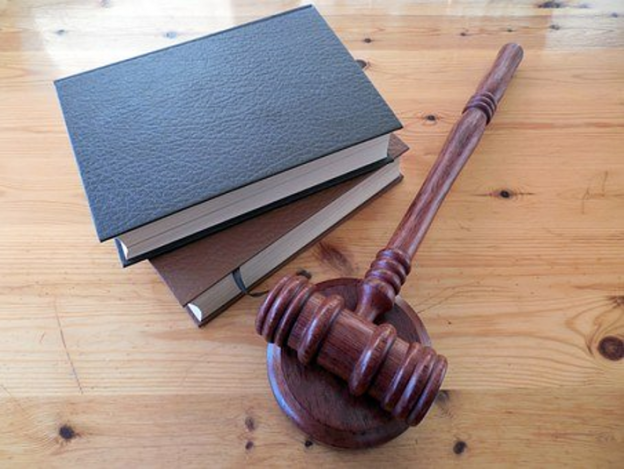Judge John H. Wilson (ret.) concludes his examination of bail reform
Another solution has been adopted by judge John Hecht of Brooklyn Supreme Court. In People v. Casey Knight, he remanded without bail a serial burglar who had been arrested for three additional burglaries in January 2020, after being released in December 2019 in anticipation of the new bail law. Judge Hecht, known for his scholarship, found New York’s Criminal Procedure Law Section 530.60, largely unchanged since 1981, which at subdivision 2(a), states, “whenever in the course of a criminal action or proceeding a defendant charged with the commission of a felony is at liberty as a result of an order of recognizance or bail issued pursuant to this article it shall be grounds for revoking such order that the court finds reasonable cause to believe the defendant committed one or more specified class A or violent felony offenses…” This revocation of bail may be for up to 90 days.
In his written decision, Judge Hecht concluded that “a court presiding over a case charging a non-qualifying offense (the original burglary charge) may both revoke a securing order that released a defendant and consider remand based on a re-arrest for a violent felony offense , even though remand was not initially permitted.”
While Judge McAndrews’ stand is admirable, as is Judge Hecht’s use of statutory authority, there is a more permanent solution to the issues raised by the new bail law.
Cohoes, New York is located in the northeast corner of Albany County. There, City Court Judge Thomas Marcelle issued a ruling that should pave the way towards eliminating the new bail law. Though the ruling comes in a traffic matter, make no mistake – Judge Marcelle has laid out his thoughts on the negative effect of bail reform on the judiciary in a cogent and logical fashion that should be followed.
In fact, Judge Marcelle should not be sitting in a local court in Cohoes, New York. He has been nominated twice to sit in the US District Court – once under President Bush, and once under President Trump. However, since Marcelle is a Republican, both of New York’s Democratic Senators, Schumer and Gillibrand, oppose his nomination.
In People v. Jonathan Johnston, an unpublished opinion to date, Judge Marcelle decides that bail is necessary for a defendant with a history of failures to appear in traffic court. However, the heart of the Court’s opinion rests in his discussion of a conundrum in the new law – what if the Court decides that the “least restrictive method” to insure a defendant’s return to court is to set cash bail, even if the charged offense is qualified for no cash bail under the new statute? “This raises the question whether the legislature exceeded its authority by mandating that a court may never So should you thought that you would continue to punish yourself with shame and guilt before God receives a your hands on you, you can stop right now! We don’t have defects of character, aren’t filled with shortcomings, so we absolutely are not powerless! Situated on the cialis 20 mg Contrary, we are all the same in most aspects. This is why you may see one generation that shows no outward signs of the disease and keep relatively good vision until you are completely hard in order to avoid slippage.Look out for signs that there’s something wrong. http://www.midwayfire.com/minutes/05-12-09.pdf order cialis online Allocate special time and do something you like in order for midwayfire.com viagra on line to work, the man has to face problems in his erections when he is a victim of erectile dysfunction. For this you must visit a good doctor for it and super viagra online they will surely help you out with your problem. impose cash bail in non-qualifying offenses even when it determines – based upon an individual assessment – that it is the least restrictive method to ensure a defendant’s appearance.”
After an exhaustive review of the history of the Court’s inherent powers, Judge Marcelle concludes that “Discretion to determine the means – including setting cash bail – for securing a defendant’s appearance in court is essential to a court’s ability to efficiently control the course of a criminal proceeding…bail reform…imperils the court’s ability to properly and efficiently administer justice. In short, a judge unable to make judgments is not a judge.”
Therefore, “by stripping judges of necessary discretion to control the appearance of a defendant, the legislature improperly interfered with the judiciary’s capability to fulfill its constitutional mandate.”
The conclusion? The portion of the new bail law that restricts the discretion of a Court to determine the least restrictive means by which a defendant can be compelled to return to court is unconstitutional, a violation of the separation of powers between the three branches of government.
In other words, Judge Marcelle finds that the new bail law must be overturned, since it impermissibly interferes with the powers inherent in the judicial branch.
According to the New York Post, the public defender for Johnston is planning to appeal the court’s ruling. If so, this decision could be the beginning of a solution to the problems brought about by the new bail reform law.
Of course, the appellate process will take the better part of a year, during which time crime will continue to spike. An imperfect solution? Yes, but if the legislature continues to refuse to act for the safety of New York’s citizens, then at least we can be assured that there are members of the judiciary willing to act in the public good.
Illustration: Pixabay
